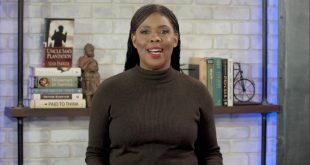 Last week, I had the pleasure of speaking at the National Action Network’s (NAN) 17th annual national convention in New York City. NAN is one of the leading civil rights organizations in the United States. It was founded in 1991 by the Rev. Al Sharpton to “promote a modern civil rights agenda that includes the fight for one standard of justice, decency and equal opportunities for all people regardless of race, religion, nationality or gender.”
Last week, I had the pleasure of speaking at the National Action Network’s (NAN) 17th annual national convention in New York City. NAN is one of the leading civil rights organizations in the United States. It was founded in 1991 by the Rev. Al Sharpton to “promote a modern civil rights agenda that includes the fight for one standard of justice, decency and equal opportunities for all people regardless of race, religion, nationality or gender.”
The convention proved to be a great stage for productive dialogue and conversation through various panels. Some of the topics discussed included housing, health care, law enforcement, corporate finance and education. I voiced my opinion on several of these issues, while also promoting the idea that the choices we make in this world have the most to do with our outcomes. Personal responsibility and self-determination — not the household into which you are born, the police force in your neighborhood or the color of your skin — are the key contributing factors of your life.
Sharpton and I have the same goal: to build a brighter, stronger America that provides equal opportunities and access to the underserved and forgotten. However, we have a fundamental difference of opinion regarding the best way to achieve such an end.
I know from my own experience of having been raised in dire poverty by a single mother that education has the power to bridge socio-economic divides and lift entire families out of destitution. My mother, who is the hero in my life, refused to embrace a victim mentality that many do in today’s world. That is why I stress the importance of instilling in our children the mindset that they can accomplish anything if they do not think they are victims.
Fifty years ago, this nation began a war on poverty that we have not come close to winning. This is due to the fact that rather than creating a system that lifts people out of a meager financial situation, we have developed a system that perpetuates generational dependence and an inability to escape hardship.
The programs established throughout the years have not worked, because the implementation and follow-up procedures do not match the rhetoric heard in press conferences and announcements.
Some have attempted to win the war on poverty and improve the members of our community by holding boycotts and assembling demonstrations. This method has made some people wealthy (the organizers), but not the people it claims to help. It is crucial that through various policies and self-reflection, we get more people from a state of dependence to one of independence. In the African-American community, we do not need to wait for others to help us. We need to use our God-given talents to achieve greatness and lift others up.
Ever since I was introduced into medicine and surgery during my young adulthood, I’ve seen a plethora of young families in stress, and that has shaped who I am today. As people of all different colors have put their health in my hands, I truly have been able to understand all their brains, brilliance and decency.
I come from dire poverty, not knowing where the next meal would come from. Despite my pedigree as a pediatric neurosurgeon, I have been assumed to be an orderly in the hospital because of my race. I have been through tough times and struggles and can relate to the plight of many.
But our diversity is a blessing, and God has given us all the tools to overcome tribulations and be as productive as the next person. There is no stone we cannot overturn. America achieved prominence in record time because of its talented and diverse population, and the future should be no different. Let us not play into the game of having enemies. Let us come together to hold fast to those principles and family values that got us through troubling times so that we can uplift all communities and foster equality.
COPYRIGHT 2015 THE WASHINGTON TIMES
DISTRIBUTED BY CREATORS.COM
Photo credit: ellenm1 (Creative Commons) – Some Rights Reserved
 Dr. Ben S. Carson is professor emeritus of neurosurgery at Johns Hopkins University and author of the new book, One Nation: What We Can All Do to Save America’s Future.
Dr. Ben S. Carson is professor emeritus of neurosurgery at Johns Hopkins University and author of the new book, One Nation: What We Can All Do to Save America’s Future.
 CURE News and Clergy Blog News and Commentary for Christians
CURE News and Clergy Blog News and Commentary for Christians



